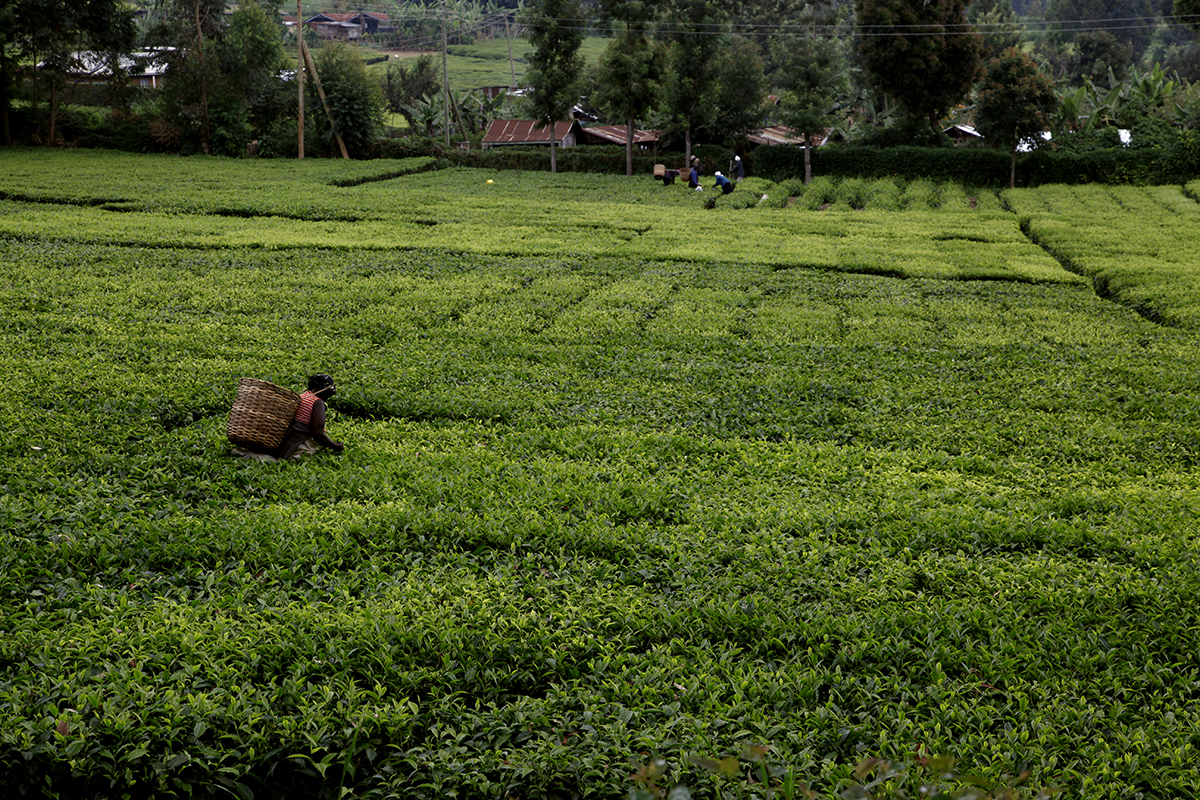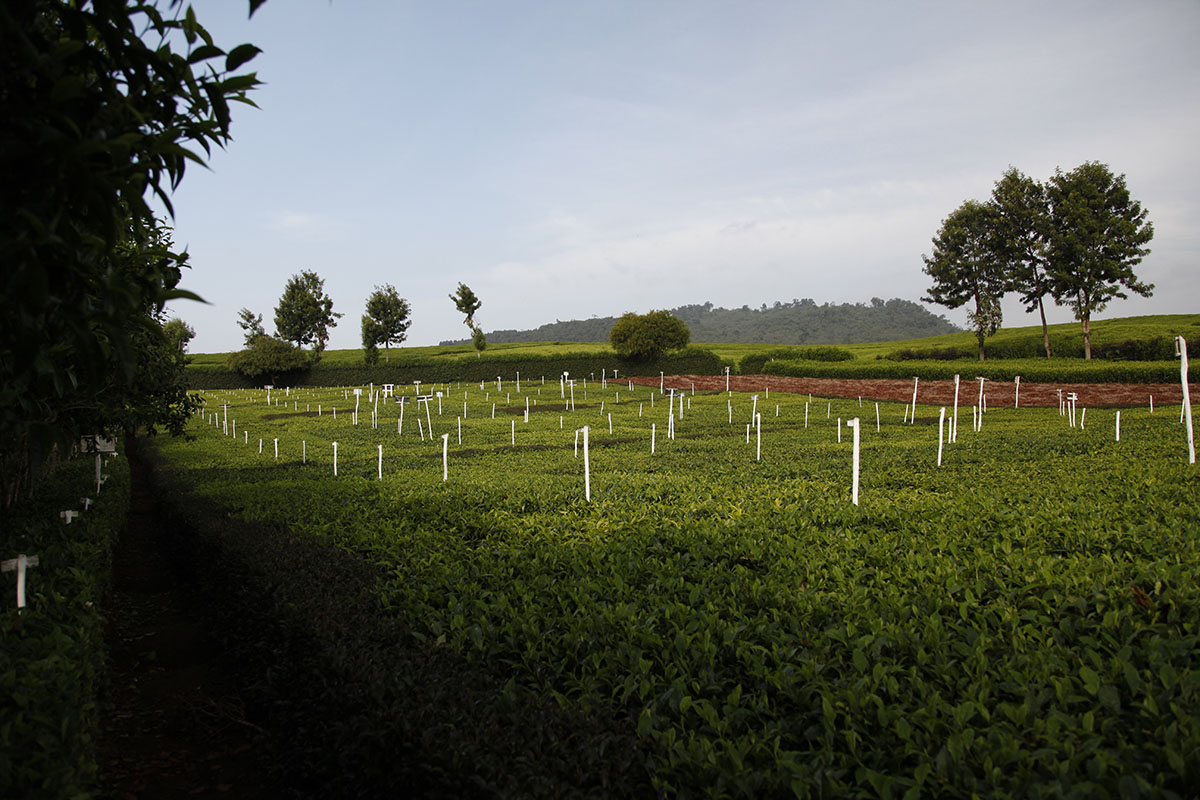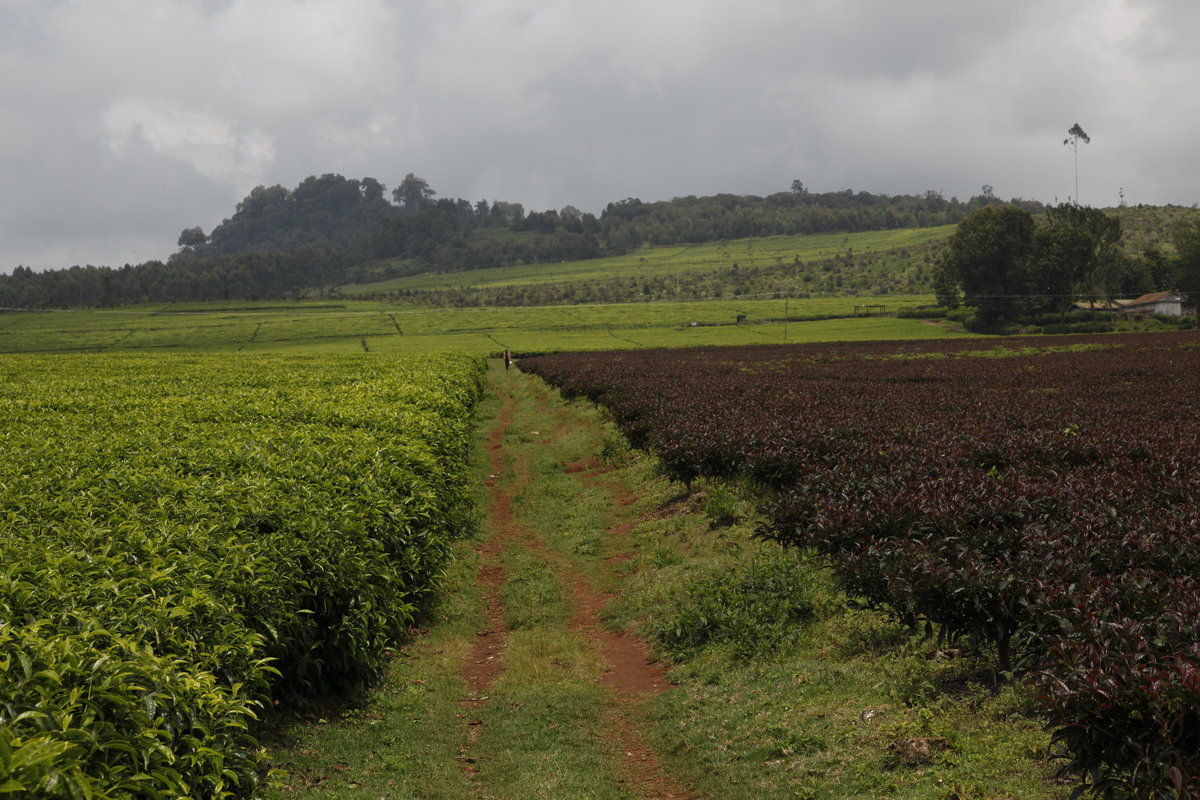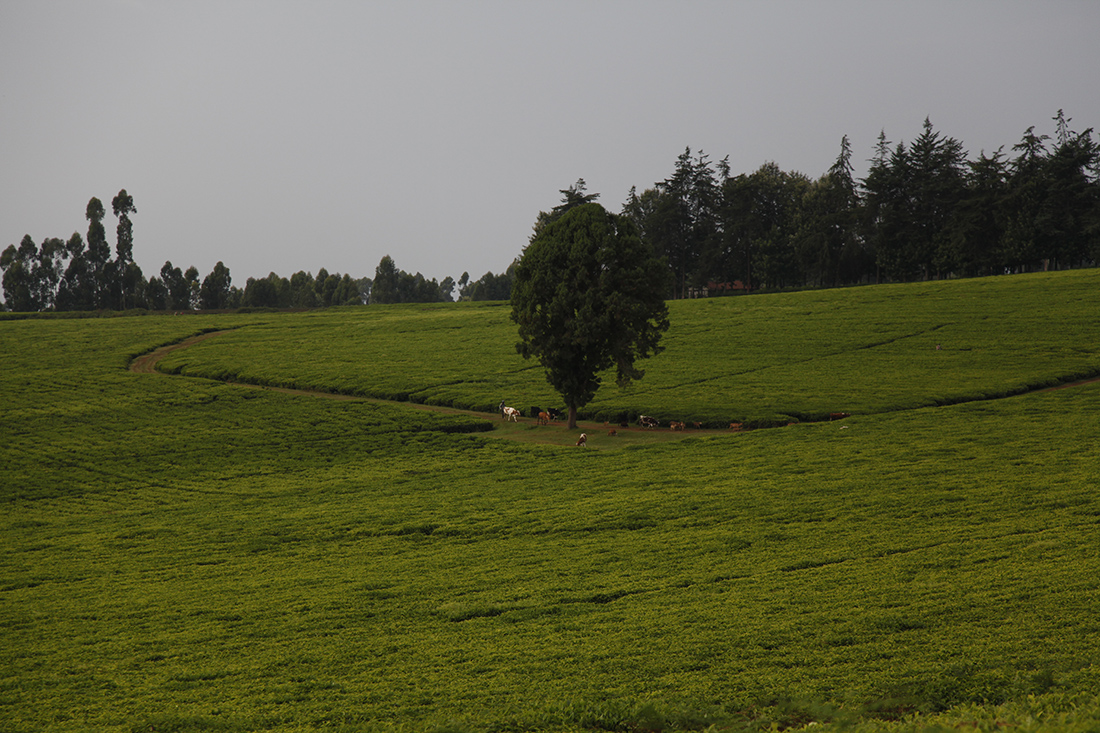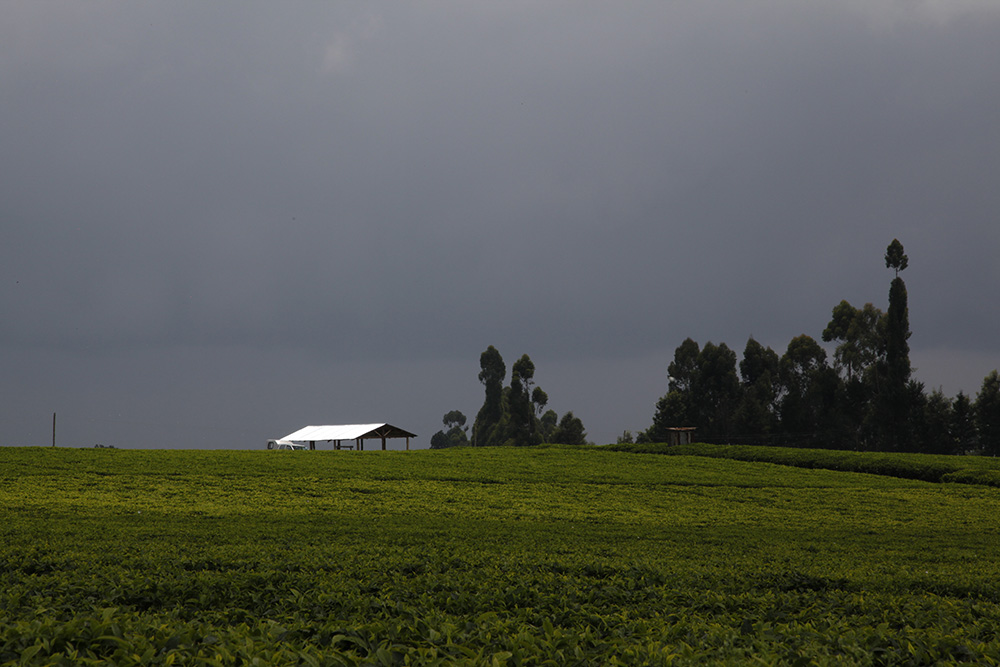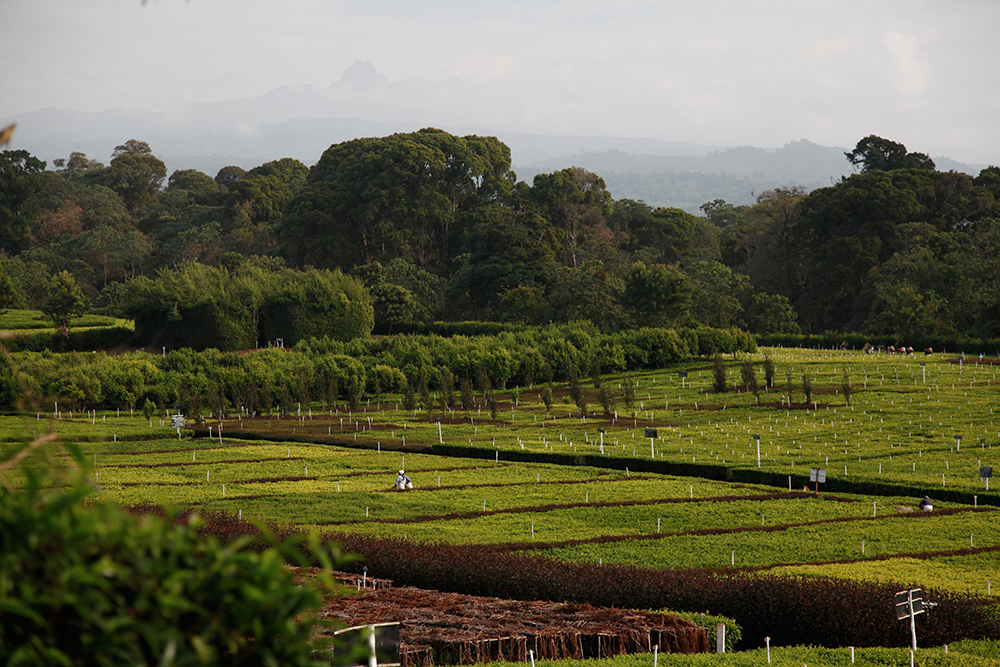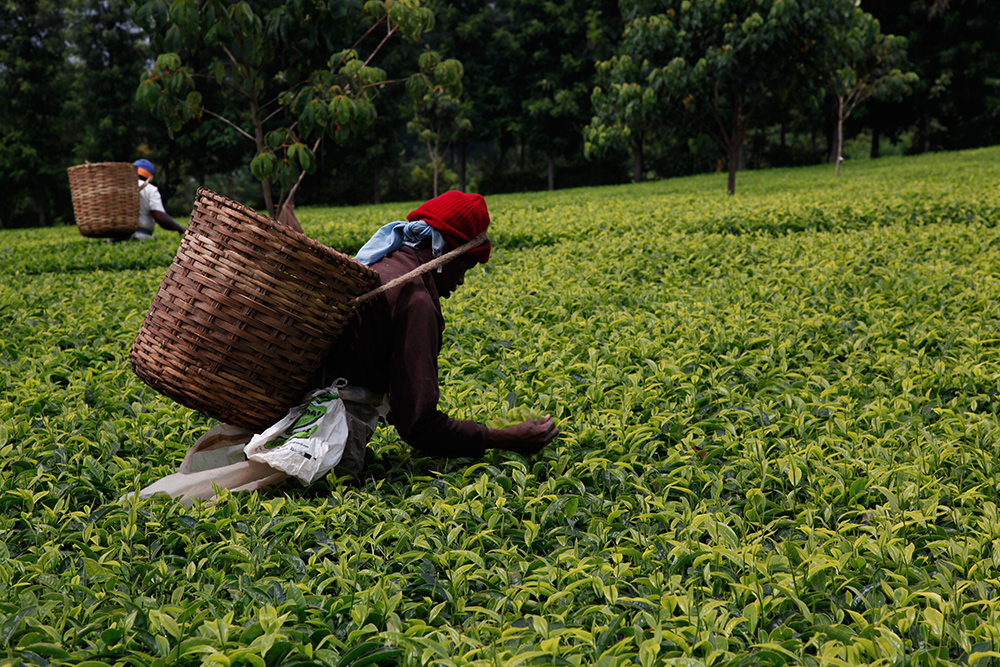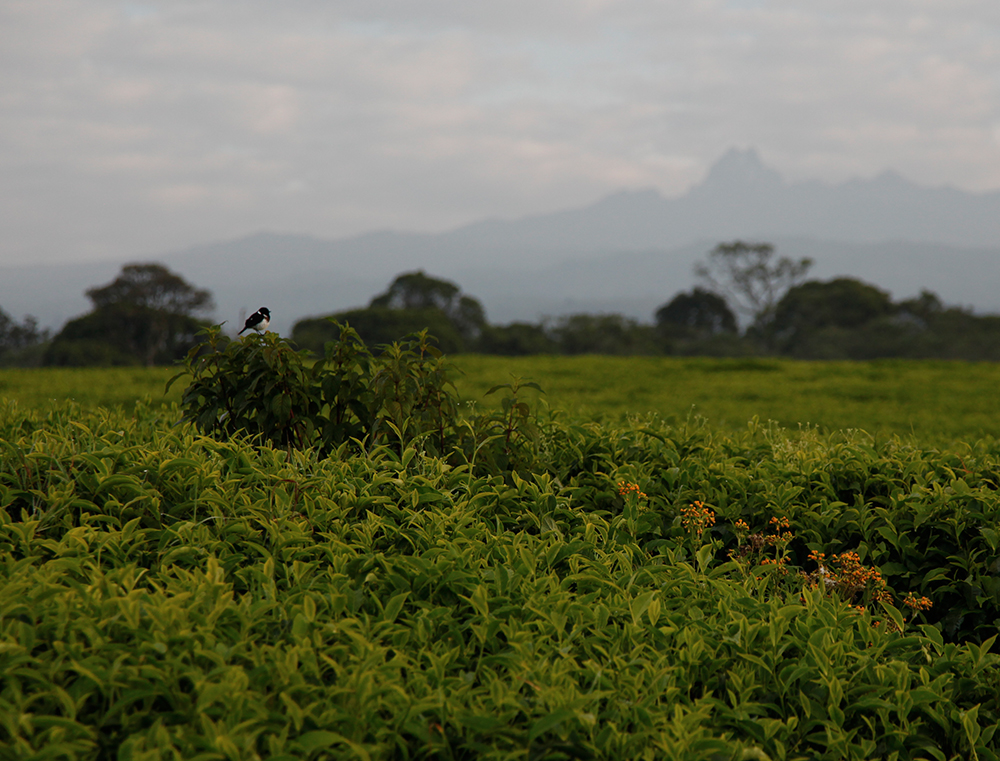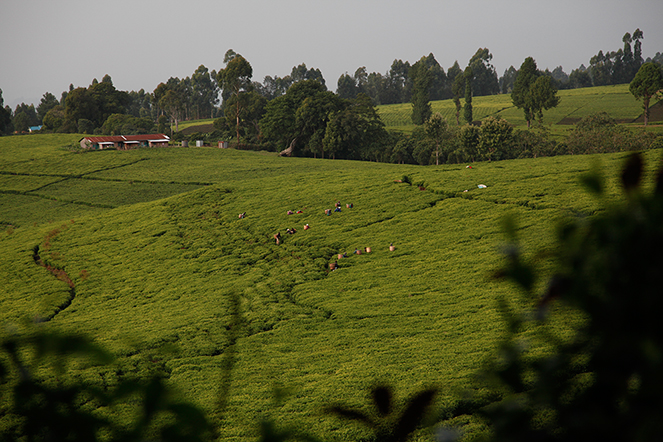It takes a lot of attention to detail to produce fine tea, harvested from this beautiful emerald expanse. Only the bud and the first two youngest leaves at the tip of the shoot must be picked. The subsequent stages in production also play an important role in quality. Let’s roll out the green carpet for everyone who helps to create such delicious teas.
Kenya
Celebrating the end of lockdown in Kenya
Today, I’m taking you to the slopes of Mount Kenya. There, at nearly 2,000 metres, a well-structured, aromatic black tea is grown. Quality varies from one plantation to the next. One of the most famous tea research centres is located here, meaning that the region’s farmers benefit from valuable advice that complies with organic practices, which are very common here.
The row of white posts bearing the names of the cultivar makes this plot resemble a memorial site. We remember the victims of this pandemic and look to the future with hope.
A tea rich in antioxidants
We might want to drink a tea for its flavour qualities, but at the same time we can be aware of its benefits and in particular its polyphenol content. One of the varieties with the most antioxidants is TRFK 306/1. It was developed by the well-known Tea Research Foundation of Kenya (TRFK), which I have visited. What is special about this variety, in addition to its polyphenol content, which is 1.5 times higher than other teas, is the colour of its leaves. You can see here, on the right, their lovely purple hue.
Altitude, a useful ally
In Kenya, some plantations lie at almost 2,000 metres. At this altitude, insects and fungi that can attack tea plants are particularly rare, due to the low temperatures. So in these conditions, it’s easier to grow teas organically. However, to be certified “organic”, as well as not using prohibited pesticides and fungicides, the soil must be enriched naturally – with compost, for example.
Tea leaves under a shelter
From the time the tea leaves are harvested to the moment they reach the factory for processing, they must not be allowed to start fermenting, as this could spoil the quality of the tea. So in various locations around plantations there are small shelters built to protect the leaves from rain until they are taken to the factory.
A premium tea from Kenya
In my teapot this morning, a portion of Mount-Kenya Golden-Leaves is opening up in the water. This is the first premium tea I’ve found in Kenya, and it has just arrived. I love its notes of honey, wood, wax and liquorice. They are warming, and celebrate the end of winter in their own way. They make you want to stay indoors a little longer, warm and cosy. They make you want to breathe in their aromas, cupping the bowl in both hands.
From field to factory
As soon as the tea leaves are picked, they must be taken to the factory as quickly as possible. The piles of leaves must not be allowed to ferment. Accidental fermentation is known to affect the quality of the tea. Here, in Kenya, they use very large baskets that are well ventilated so that the plucked leaves have room to breathe.
A tea plantation in Kenya
Kangaita in Kenya is one of the country’s few plantations that produce high-quality teas; in other words, whole-leaf. The national park of Mount Kenya borders the garden and many birds flit about the tea plants. On the other hand, elephants are not welcome, because of the damage they cause.
Here, you can see the peaks of Mount Kenya in the distance: the highest is 5,199 metres.
Tea from the slopes of Mount Kenya
Kenya is one of the biggest exporters of tea on the planet. Sadly, most of its tea is CTC (Cut, Tear, Curl) – the type used in tea bags. But that should not prevent us from seeking out, at higher altitudes, small producers aiming for quality. So here I am, on the slopes of Mount Kenya, tasting some magnificent black teas. It goes to show, one should not rush to judge: just as some great “appellations” occasionally throw up unpleasant surprises, I sometimes come across passionate people who have acquired serious expertise, in less well-known places.

